 VISION
STATEMENT VISION
STATEMENT |
To be the leading development financing institution
in Fiji and in the South Pacific.
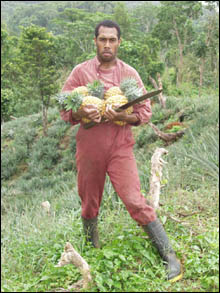
 CORPORATE
OBJECTIVE CORPORATE
OBJECTIVE |
To be a profitable and self sustaining financial
institution
 MISSION
STATEMENT MISSION
STATEMENT
|
Provide finance, financial and advisory services
to assist in the economic development of Fiji
and in particular in the development of agriculture,
commerce and industry.
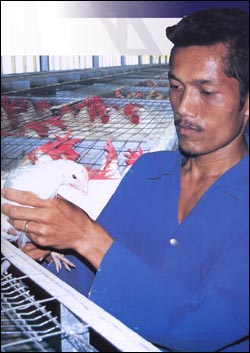
 HISTORY HISTORY
|
Development banking in Fiji dates back to December
1951 with the establishment of the Agricultural
and Industrial Loans Board (AILB). The economy
at that time, was predominantly an agricultural
one and the small farmer (many of whom were former
indentured labourers) was recognised as a key
factor to development. The need by the farmers
for finance saw the setting up of the AILB in
July 1963. Lending increased intensively where
it reached a stage that it could no longer operate
effectively. On 30th June 1967 the AILB ceased
to exist. It was here that all assets and liabilities
of the AILB were transferred to the Fiji Development
Bank (FDB), which commenced operations the following
day, 1st July 1967.
 FIJI DEVELOPMENT
BANK ACT FIJI DEVELOPMENT
BANK ACT |
Under the Fiji Development Bank Act, the FDB
received wider powers to facilitate and stimulate
the development of natural resource in Fiji. Furthermore,
economic development of the rural and agricultural
sectors of the economy was to be given special
consideration with particular emphasis on ventures
that created jobs, increased exports, utilized
local raw materials and substituted local products
for imported items. With these as its core vision
and mission, the FDB began its long journey, developing
the Fiji economy, and improving the welfare of
the people in Fiji.
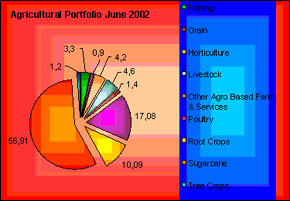
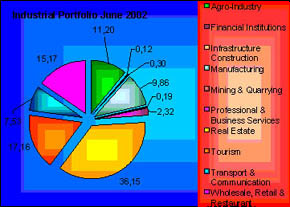
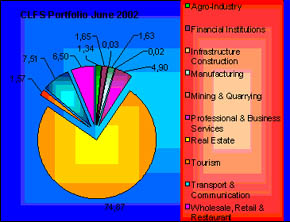
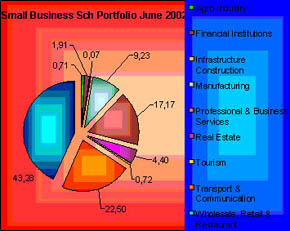
 AREAS OF
ASSISTANCE AREAS OF
ASSISTANCE |
FDB has assisted the country through its lending
in the following areas:
AGRICULTURAL SECTOR
The agricultural sector particularly sugar cane
farming.
COMMERCIAL LOANS TO FIJIANS SCHEME
In 1975 introduced a soft loan scheme for indigenous
Fijians. The scheme, known as the Commercial Loans
to Fijians Scheme (CLFS) was an initiative by
Government to encourage indigenous Fijians to
enter the fields of commerce.
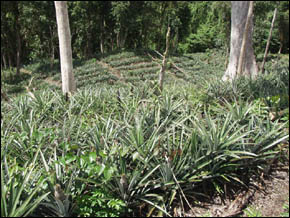
INDUSTRIAL AND COMERCIAL LENDING
In the early 80's, the Bank diversified to industrial
and commercial lending shifting from its traditional
agricultural focus.
NEW ZEALAND SMALL LOAN SCHEME (NZSLS)
April 1989 saw the establishment of the NZSLS under
a Bi-lateral Aid Programme provided by the New Zealand
Government targeting the Development of Women and
Rural People of Fiji. |
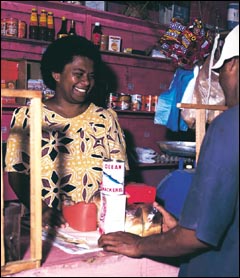
SHAREHOLDING IN COMMERCIAL VENTURES (EQUITY
SCHEME)
This equity scheme aimed at assisting new projects
in to make equity investments in projects of national
importance, to stimulate growth and development
in the country. The shares are acquired by the
Bank, and are eventually sold to existing shareholders
or to the public once the projects are established
and operating profitably.
LEASE FINANCE OPERATION
In November 1994, in its Product Diversification
for Greater Commercial Development strategy, the
Lease Finance operation was launched.
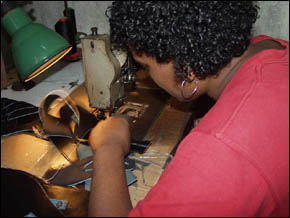
THE WORKING CAPITAL FACILITY
Working Capital to corporate clients, Bill Discounting,
and Funding for Imports was introduced in January
1996.
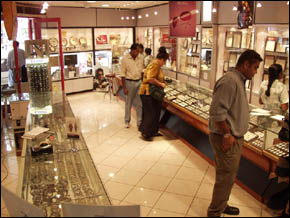
SMALL BUSINESS SCHEME (SBS)
In October 2000, its latest soft loan scheme
for communities other than the indigenous community
known as the SBS was introduced.
LOANS MANAGEMENT SYSTEM (LMS)
Keeping abreast of latest computer technology,
a newly designed in-house LMS was introduced in
January 2000.
SEED CAPITAL REVOLVING FUND (SCARF)
April 2002 saw the implementation of the SCARF.
This aimed at encouraging indigenous participation
in the areas of Eco-tourism, fishing and forestry
sectors.
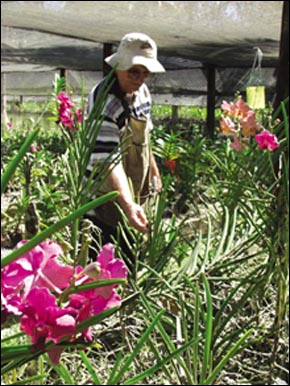
TERM DEPOSITS
Furthermore, the Bank has made a submission to
the Reserve Bank of Fiji to accept term deposits
from corporate clients and the public. This would
ease the Bank's high cost of borrowing and would
further contribute to the diversification of the
banking market.
 SUCCESS
STORY SUCCESS
STORY |
THE FIRST FOR FIJI
Soqoiwasa Marketing, at first glance, is just
like any other shoe-manufacturing factory. But
on closer scrutiny, it is peculiar and distinguished.
This factory is the first Indigenous Fijian-owned
shoe venture of its kind.
Proprietor of the business, Mr Inoke Soqoiwasa,
had long planned to establish his own business,
as he wanted to provide a secure and stable future
for his young family. His 8-years of work experience
as a factory manager at Footwear Exporters Limited
factory was sufficient background to initiate
the operations of Soqoiwasa Marketing. With the
financial backing of FDB, his dream was finally
fulfilled with the opening of his outlet in the
capital, Suva in 1995.
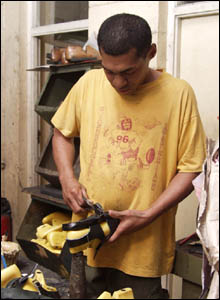
Spearheading the operations, entrepreneur Soqoiwasa
initially adopted a niche marketing strategy,
focusing on specially designed sandals for school
students. Targeting the secondary school markets
such as Queen Victoria, Adi Cakobau, Sila Central
and Ballantine Memorial Schools, Soqoiwasa Marketing
has enjoyed their loyal services since 1996.
In 1997, the business introduced into the market
their new brand of sandals "Lako Tu"
to differentiate them from other suppliers and
to develop into a household name in Fiji. This
product differentiation has attracted demand from
renowned local high schools like Ratu Kadavulevu
School, Levuka Public School and Delana Methodist
School.
Growth has been at a steady rate and is expected
to expand progressively. Employees have also increased
to 40 compared to 4 when the business was established.
To anticipate the demand and subsequent business
expansion, Mr Soqoiwasa approached FDB for further
funding assistance in 2001.
When interviewed, Mr. Soqoiwasa said "
I am very grateful to the Bank for its support
and I will always know that I can rely on them
for any further assistance".
Even though Soqoiwasa Marketing faces stiff competition
from both local and overseas suppliers, Mr. Soqoiwasa
believes he has a competitive edge in terms of
price and quality. His determination and competency,
has seen him surviving the storm this far.
In this 21st century, the FDB continues to review
its services in line with changing customer demands
and global trends. For further information on its
products and services, go to www.fijidevelopmentbank.com.
|

